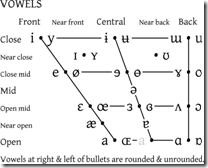Disclaimer: I Was Not an English Major
[I asked Associate Editor Anna Cavallo to give us her unique view of editing.]
We editors all bring something different to the table at Lerner—knowledge of foreign languages, an interest in football, etc. In my case, a background in linguistics is one of these quirky assets.
Many of my colleagues have degrees in English, and that’s generally assumed to be my background when I introduce myself as an editor. In fact, as a teenager I thought I would be an English major, and I wanted to be an editor when I grew up. But then… I learned some Latin. And some Spanish. And moving to California made me hyper-aware of the (er, my) Upper Midwest accent, the California accent, and the regional usage differences. I was fascinated.
Eventually it was clear: I am a linguist. So I studied linguistics, and I adored it. But upon graduating, I still wanted to be an editor. …Hmm.
Fortunately, linguists can be good editors! In fact, the S&L publishing world is a great fit for linguists with an interest in language acquisition, as much of the editing is geared toward making the  text appropriate and accessible for a certain age or grade level. For example, my work may involve making sure a simple syntax balances challenging vocabulary in a third-grade text about Jupiter (cover at left).
text appropriate and accessible for a certain age or grade level. For example, my work may involve making sure a simple syntax balances challenging vocabulary in a third-grade text about Jupiter (cover at left).
I’ve also become known to at least one colleague as the unofficial Pronunciation Specialist. Need to know how to break down “Charlemagne” (SHAR-luh-mayn) or “pharaoh” (FAIR-oh) or astrophysics terms for a young reader? I’m your girl—phonetics is one of my favorite subfields of linguistics. (Th ough every once in a while, it does seem impossible to devise a clear, phonetic spelling, and at those times I long for the International Phonetic Alphabet (IPA) that linguists use. This helpful chart is from http://en.wikipedia.org/wiki/File:IPA_vowel_chart_2005.png.) The many vowel symbols of the IPA could make English pronunciation guides so much clearer and more accurate… if only they were known outside the linguistics realm.
ough every once in a while, it does seem impossible to devise a clear, phonetic spelling, and at those times I long for the International Phonetic Alphabet (IPA) that linguists use. This helpful chart is from http://en.wikipedia.org/wiki/File:IPA_vowel_chart_2005.png.) The many vowel symbols of the IPA could make English pronunciation guides so much clearer and more accurate… if only they were known outside the linguistics realm.
Sociolinguistics is another favorite of mine, and it can be extremely relevant to editing. Does a text involve any characters that have thoughts or dialogue? If so, the language they use should match their gender, age, class, and regional background. (Note: I’m leaving out countless other sociolinguistic factors.) Is the text historical fiction? Then even the narration may include sayings or constructions that wouldn’t fit in a modern story—they subtly add context and flavor.
My English-major colleagues and I share our passion for language in many ways. But I’m always glad to inform someone that there are other routes into the editing world. We actually have quite a diverse collection of backgrounds on staff—which, I think, helps us all create high-quality books.